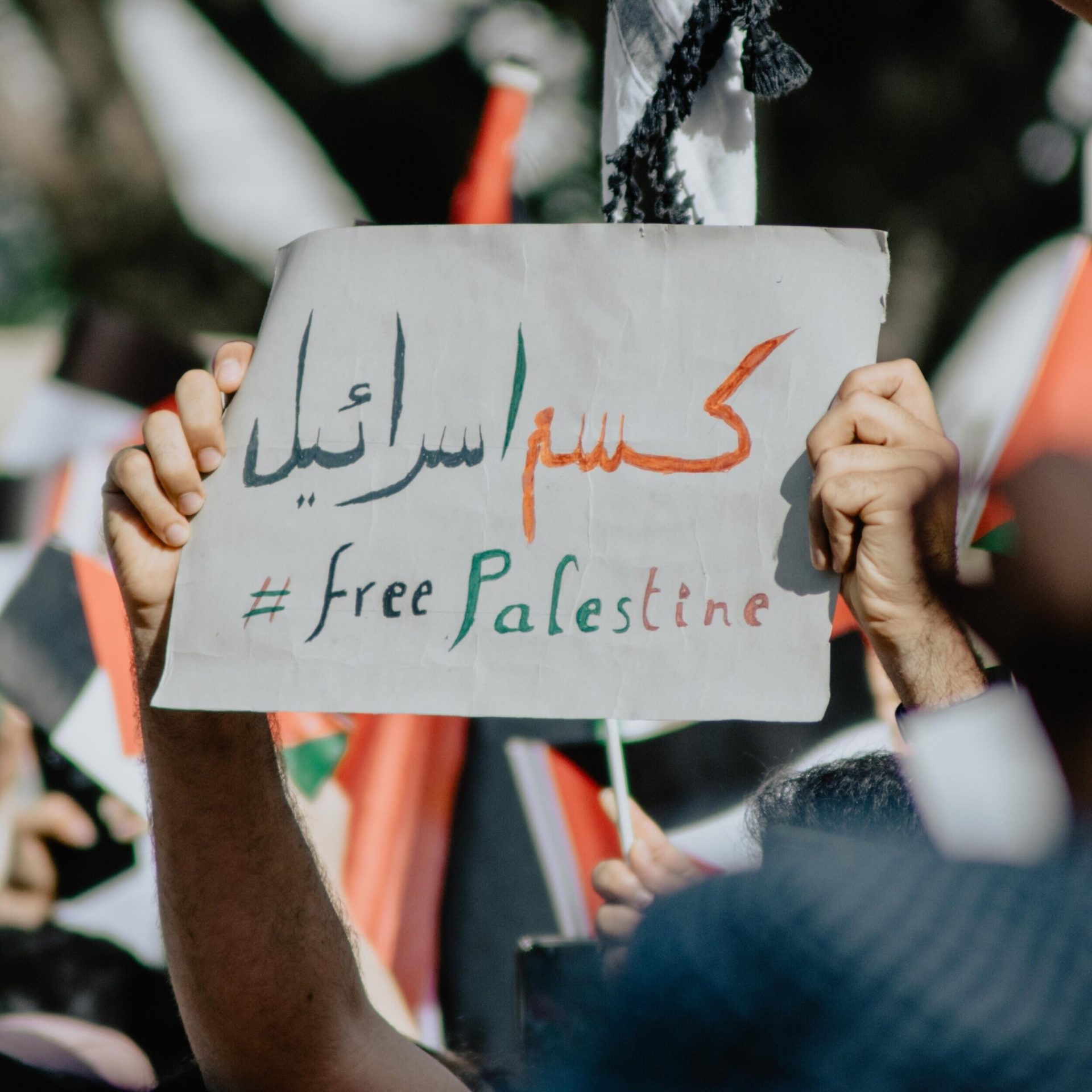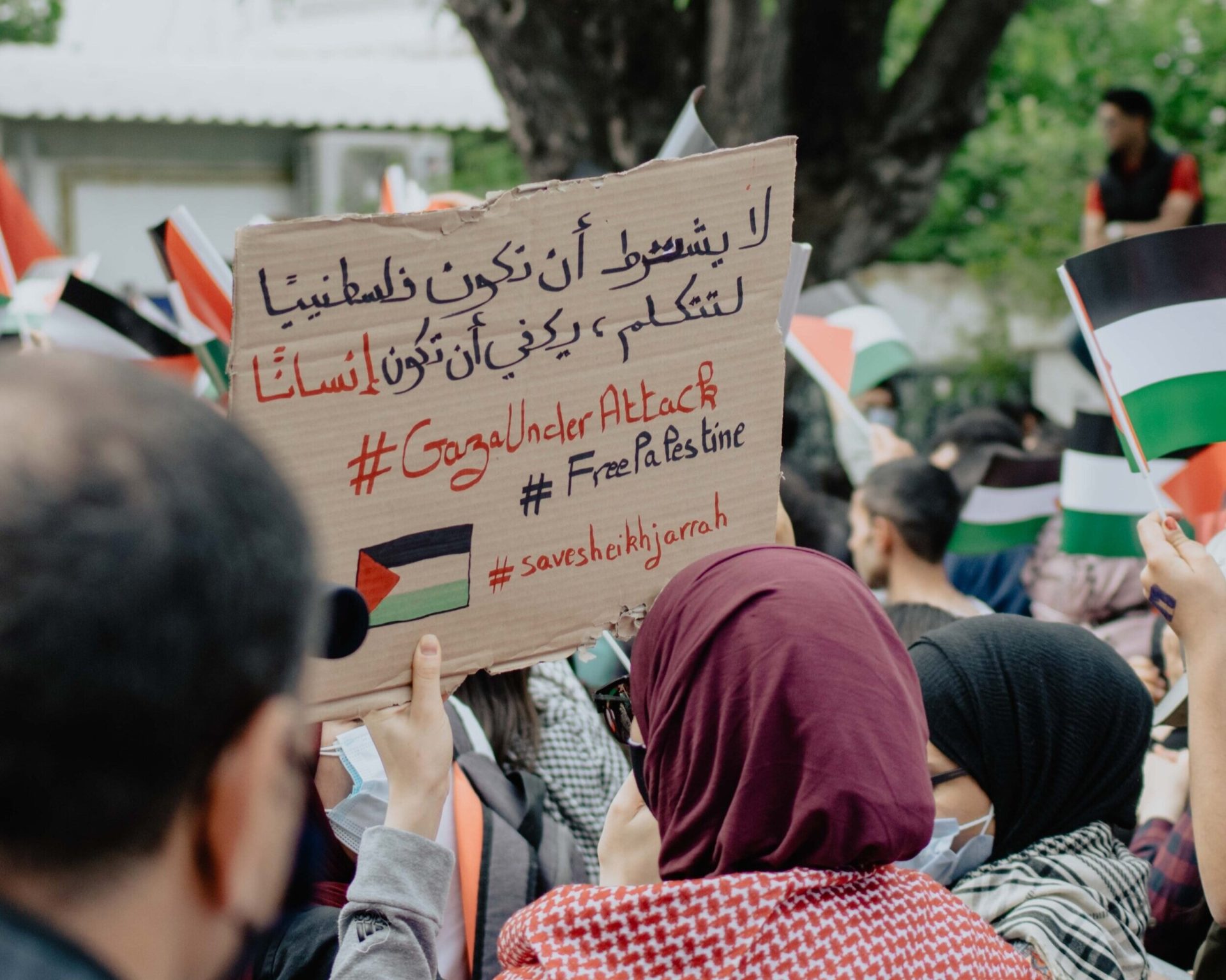
*Update 5/21/21 at 1:50 P.M – This article has been updated to account for the ceasefire and new casualty numbers.
In a video now seen by millions worldwide, 10-year-old Nadine Abdel-Taif standing over rubble and ash after an Israeli bombing in her Gaza neighborhood, asks, “why do we deserve this?” Nadine, distressed by the violence and with tears trickling down her eyes, adds, “You see all of the kids around me, they’re just kids. Why would you just send a missile to them and kill them? It’s not fair.”
Nadine’s simple yet precise questions strike at the core of the over 73-year old crisis between Palestine and Israel. Palestinian children like Nadine live in perpetual fear of their lives. According to recent estimates, 227 Palestinians have been killed in the last 11 days by Israeli military raids on the Gaza Strip. Among the casualties are 61 children and 34 women.
God, my heart. Bless her. pic.twitter.com/ZEsJ4ru2FX
— Barry Malone (@malonebarry) May 15, 2021
The airstrikes and military actions from the Israeli government occurred after Hamas, a militant group that controls the Gaza strip, fired rockets into Israeli territory. Even though Israel’s Iron Dome – its anti-missile system – has intercepted more than 90% of these projectiles, 12 Israelis have been killed by the rockets that have landed.
The escalation in tensions began with six Palestinian families from the Sheikh Jarrah neighborhood in East Jerusalem facing evictions from their homes. Even though Palestinians have lived in these homes since the 1950s, Israeli courts have ruled that Jewish settlers have a right to the land that Jewish organizations owned before the 1948 Israel-Palestine war. On May 9, the Israeli Supreme Court delayed a ruling which would either uphold or overturn the planned Palestinian evictions.
In response, over the past couple of weeks, Palestinians in East Jerusalem gathered to protest the evictions. After some of these protests turned aggressive within the Al-Aqsa mosque compound, Israeli police officers fired rubber-coated bullets and stun grenades even at the worshippers inside who were praying during the last Friday of the holy month of Ramadan. Hundreds, including women and children, were injured inside the mosque.
The Israeli government has also insisted that this is merely a real-estate dispute, but Palestinians have asserted that it is part of a systemic approach by the Israeli government to increase its control over Palestinian populations. The Israeli policy of forced displacements is a clear violation of Article 49 of the Fourth Geneva Convention, which unambiguously prohibits “individual or mass forcible transfers, as well as deportations of protected persons from occupied territory.”
In 2016, in a letter to the editor piece for the New York Times, I admonished that the Israeli government’s settlement plans would further catalyze conflict. Since then, these settlements have strategically cornered Palestinian neighborhoods. The end goal is clear: continue to displace Palestinians and increase Israeli presence across the Gaza strip and the West Bank.
This two-tier system employed prolifically in Jerusalem, as non-government organizations like the Human Rights Watch (HRW) have documented, prioritizes the rights and privileges of Israeli citizens over Palestinians. In a report published last month, HRW has labeled the actions of the Israeli government as “crimes of apartheid and persecution.”
Palestinians face discrimination as the Israeli authorities intend to establish majority Jewish populations while boxing in Palestinian areas. The “systematic oppression,” of Palestinians, referred to by a plethora of human rights groups, has continued since 1948, through the course of what was supposed to be ‘temporary’ Israeli occupation.
Researchers at Kingston University London have found that the trauma that Palestinian children are exposed to leads to long-term behavioral and cognitive complications. Many Palestinian children like Nadine grow up around constant Israeli Defense Forces (IDF) presence. Their only interaction with someone from the other side is intuitively adversarial because of the disparity in the power dynamic. The animosity is self-perpetuating – a vicious cycle of hate that spans generations.
A 2018 assessment by the United Nations Children’s Emergency Fund (UNICEF) found that 1 million Palestinian children are in imminent need of humanitarian assistance. The psychological effects of war coupled with the dire economic status-quo of Palestinians have prevented Palestinian communities from thriving. One-third of Palestinian families live below the poverty line, and the unemployment rate of the youth in Gaza is an astounding 69.9%.
So why should Americans care about a group of people on the other side of the world?
The US role in the establishment of Israel in 1948 is inseparable. Along with the British government after World War II, the US made a series of miscalculations in its foreign policy pertaining to Israel. Since the end of World War II, Israel has been the largest cumulative recipient of US foreign assistance. To date, the US has spent $146 billion in aid to Israel.
The US has also pledged to provide $38 billion in military funding through 2028 under its third 10-year Memorandum of Understanding (MOU) with Israel, which marks an increase of $8 billion from the previous MOU. Just days before the recent violence began, the Biden administration had presented a plan to Congress of nearly $735 million in US weapons sales to Israel.
Despite Israel’s violations of human rights, the US continues to support the country extensively. Granted, Israel has been a key US ally in the region and faces numerous security threats from other countries; nonetheless, the US has failed to hold it accountable despite the economic leverage it holds over it. The US has systematically ignored the plight of the Palestinians. Amid the rising tensions, Benjamin Netanyahu, the Prime Minister of Israel, has made it a point to, as he says, “levy a heavy price,”, which has essentially meant a death sentence for hundreds of innocent Palestinian civilians.
Netanyahu, who is currently on trial for bribery, fraud, and breach of trust, has used this crisis to strengthen the grip of his waning power within Israeli domestic politics. Even amid international pressure urging his government to reach a ceasefire with Hamas, he has categorically dismissed this pressure.

So far, the Biden administration has had an inconsistent approach to the crisis. From the very beginning, the mixed messages sent by Biden have allowed Netanyahu to continue his government’s military airstrikes which have destroyed healthcare facilities and other important infrastructure. It was only after an immense amount of international pressure that the current ceasefire was finally reached and agreed to by the Israeli cabinet.
The former Trump administration’s policy in the region was also one-sided, designed to disincentivize the Palestinians from even coming to the negotiating table. Netanyahu was able to manipulate Trump into breaking international policy. For example, the moving of the US embassy to Jerusalem and recognition of Jerusalem as Israel’s capital was an unequivocal signal by the Trump administration that the US was moving forward without regard to the concerns of Palestinians.
Don’t get me wrong, Israel has a right to exist but so does Palestine. Israel also has a right to defend itself, and so does Palestine. But can self-defense be the go-to excuse every time the Israeli continued settlements and evictions lead to resistance by the Palestinians? Israeli military raids have killed more people in the past week than Hamas’ rockets have in the last 20 years. It is a vastly inordinate response.
I am not excusing the actions of Hamas. In fact, Hamas’ philosophy is entrenched with antisemitic tropes, and the violence that it perpetuates contributes to further escalation. As much as it claims to, it does not represent Islam, and most Palestinians do not support its malicious tactics.
Many media outlets tend to equate Hamas’ actions as “radical Islamic theocracy.” There is no such thing as radical Islam. Chapter 5, verse 32 of the Holy Quran says, “the killing of one person is like the killing of all of mankind.” There is only one true peaceful Islam, just like there is one, true peaceful Judaism.
These terms may seem trivial, but they serve as a critical metric in how people perceive the conflict around the world. I urge Western nations and media outlets to refrain from using these terms and instead refer to Hamas by what it is: a political group that spreads terror instead of practicing the actual teachings of Islam. It is bereft of prudent and moral leadership, just like the current Netanyahu government.
Predictably, the political tribalism in the US has made this issue into a zero-sum game. Senators like Ted Cruz would like us to believe that the US is not doing enough to support the Israeli cause and that the Biden administration is to blame for the rocket firing by Hamas.
Once again, politicians like Ted Cruz are using this crisis to fuel their own political agendas. Blanket statements and press releases playing the blame game are unproductive. Similarly, virtue-signaling social media posts that ask people to unfollow or block those they disagree with will not do anything either.
As Americans, we have to recognize the violation of Palestinian human rights. To publicly recognize the suffering of Palestinians does not make one antisemitic or against the existence of Israel. In fact, it does the opposite. It upholds the teachings of Judaism and helps break the cycle of hatred that jeopardized Israel’s safety in the first place. It also makes you human. The power dynamic between Palestine and Israel speaks for itself: Israel has the military resources and political wherewithal to mediate the situation.
Even though a ceasefire has been reached, the Biden administration needs to develop a coherent policy. It cannot choose not to be involved, as some in the Biden team have hoped. Let’s not forget what happened in 2014, where a similar ceasefire was reached after 50 days of constant violence resulting in the killing of 2,100 Palestinians and 66 Israelis. The 2014 ceasefire did not solve the conflict and was unable to prevent further long-term violence. History bears witness and the Biden administration cannot be complacent during this ceasefire. Short-term ceasefires, though a step in the right direction, still leave open the risk of renewed conflict at any given time.
If the Biden administration wants to lead the world on a broader foreign policy scale, it must call out injustices resoundingly. To have long-term peace in the region, both sides need to listen and address each other’s rights. By neglecting the suffering of Palestinians, the Biden administration is only giving extremist groups like Hamas more legitimacy.
For those of us closely following the situation, we must be cognizant of the language we employ in our social media posts and the sources of information we derive from to learn about ongoing developments. Both anti-Muslim and antisemitic rhetoric has exacerbated communal relations </span >between Israelis and Palestinians. Even outside the area, in the past couple of days, there have been reports of rising antisemitic incidents in the US and UK. We all have a moral responsibility to call out these heinous acts and the continued oppression of the Palestinians.
The Biden administration cannot let the Netanyahu government and Hamas carry on their divisive tactics and exploit the conflict based on ethnic and religious lines. To establish sustainable peace, Palestine and Israel need to embrace their differences and recognize the colossal human toll that the violence has undertaken. The future of millions of children like Nadine Abdel-Taif is at stake.
______________________________________________________________________________________________________________________






